The long-term storage of backups is generally an essential part of cybersecurity and disaster recovery plans in any serious business. Moreover, many applications have regulatory, compliance, or other business purposes that require the retention of database backups beyond a lapse of just days or months.
Until now, all backups (automatic and manual) in Oracle‘s Autonomous Database on Dedicated Exadata Infrastructure (ADB-D) and Exadata Cloud@Customer (ADB-C@C) were tied to the retention set on the Autonomous Container Database (ACD) for up to 60 days. So today, we‘re announcing the launch of Long-Term backups for Autonomous Databases (ADB) on ADB-D and ADB-C@C.
With this update, customers can now more easily meet their cybersecurity, DR plans, and compliance requirements for storing backups. This new capability allows customers to select a retention time between 90 days and 10 years for long-term backups.
OCI Console Experience
Once you have navigated to the ADB on which you want to run the long-term backup, scroll to the bottom left of the page and select Backups under Resources.
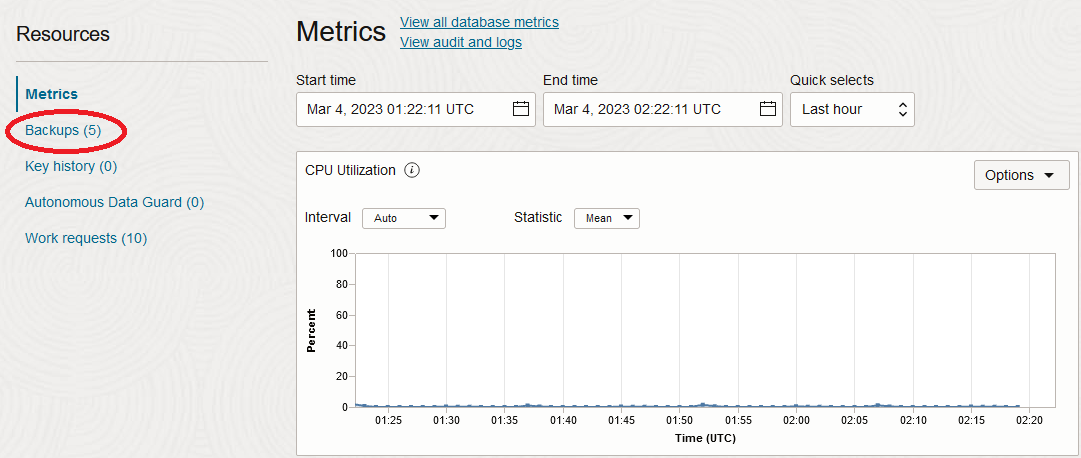
In the Backups section, you now have a new option called “Create long-term backup.”
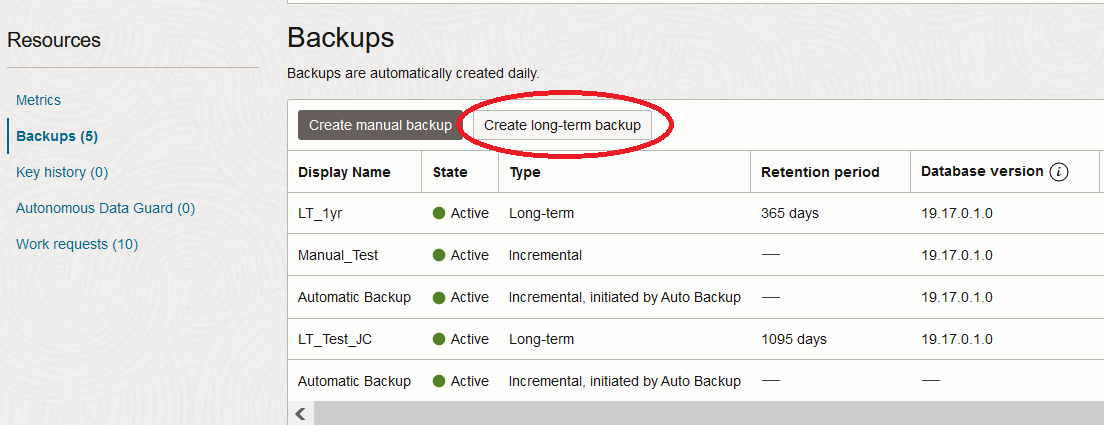
A screen will pop up where you must enter a backup name and set the desired retention.
Public Cloud:
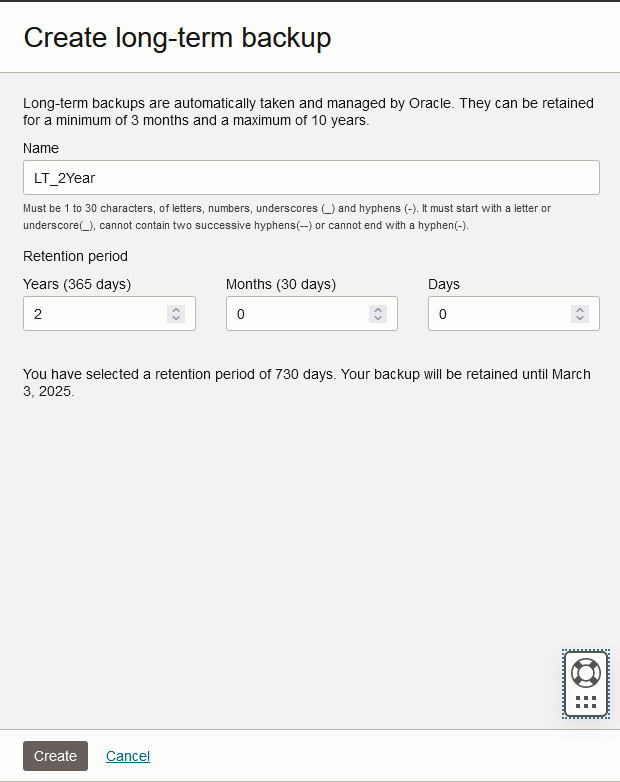
Cloud@Customer:
In the initial release for Cloud@Customer, long-term backups must be stored on an NFS device, but it does not have to be the same device that the automatic and manual backups use. Select an existing NFS device or create a new backup destination under the Infrastructure section of your Cloud@Customer resources in the UI.
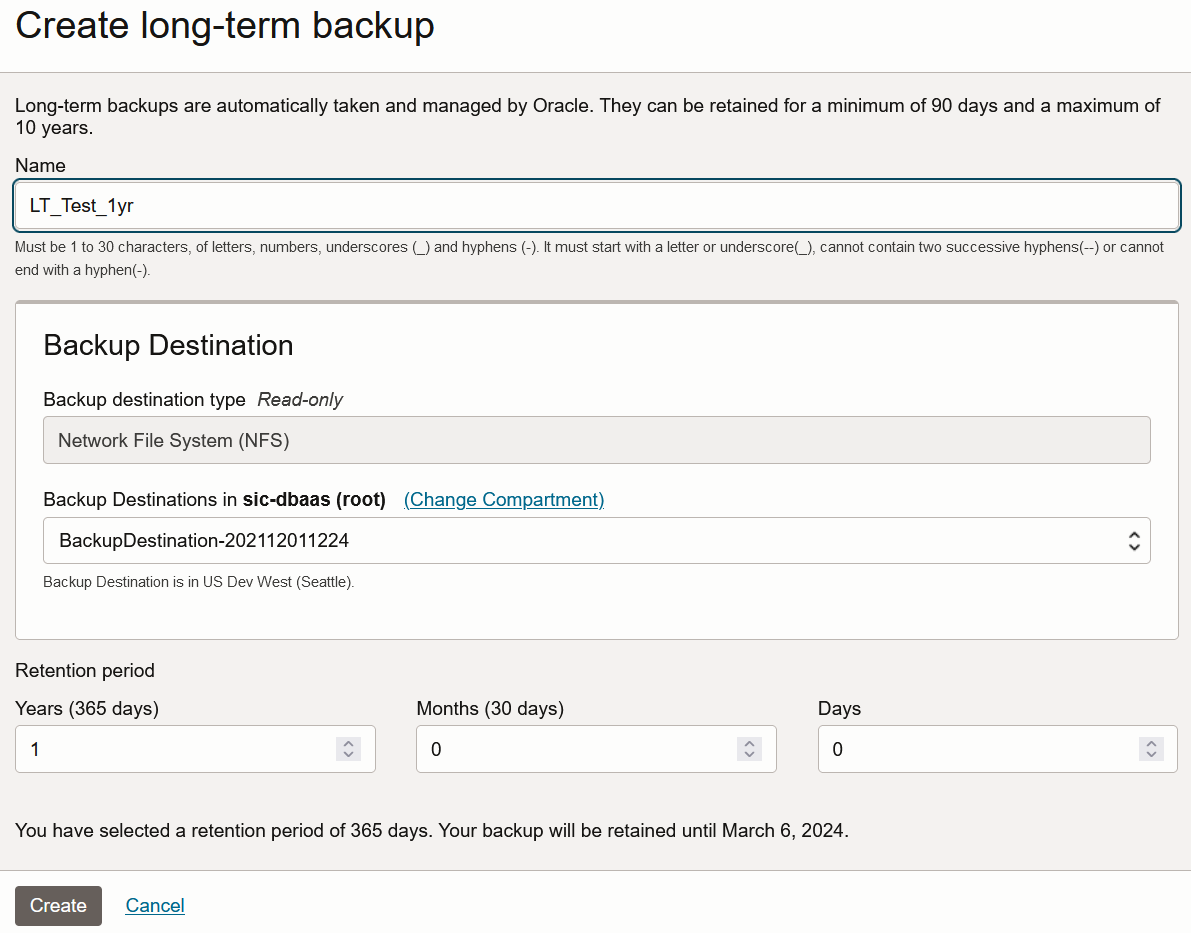
Click Create, and that is it. An asynchronous backup job will be automatically created for you and can be monitored under the Work Requests tab. Once the backup has been completed, a few operations can be done with it.
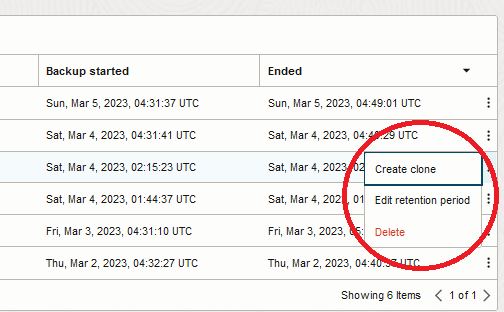
A new ADB can be created from the long-term backup, the retention time can be edited as needed from 90 days to up to 10 years, and the backup can be deleted if desired.
A few final things to understand about long-term backups:
- In Data Guard environments, long-term backups will happen on the primary or standby database wherever the action was initiated. If desired, you must make two separate requests to back up the primary and standby databases.
- A long-term backup will be available as long as the ADB is available in the running or stopped state (not terminated).
- You can use a long-term backup only to create a new database. You cannot use it for an in-place/PITR restore.
- Long-term backups are fully supported in the UI, CLI APIs, or through Terraform.
- Creating an ADB from a long-term backup will always be upgraded to the currently supported version (target ACD version). For example, a 5-year-old backup may not have 19c available, so Oracle will upgrade the database to 23c. However, the ADB created will not guarantee that an application will work just because the data is available.
That’s it. Long-term backups put you in full control of your recoverability compliance requirements and are completely automated and managed by Oracle! Remember it‘s a good idea to test your long-term backups occasionally by creating a clone from them and verifying your data is available.
Resources
- New Feature Announcements
- Backup and Restore Autonomous Databases
- Create a Long-Term Backup
- Manage Long-Term Backups
